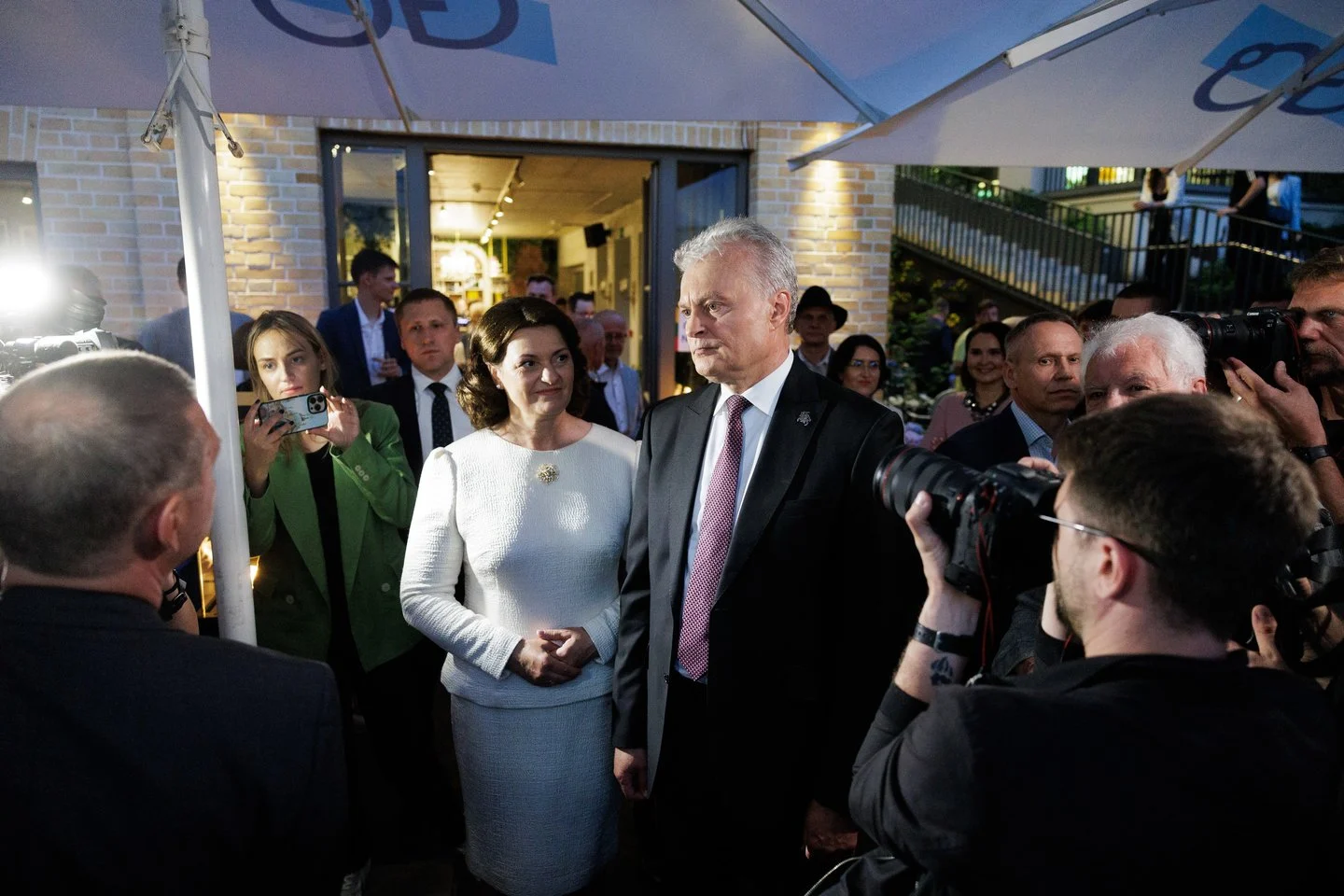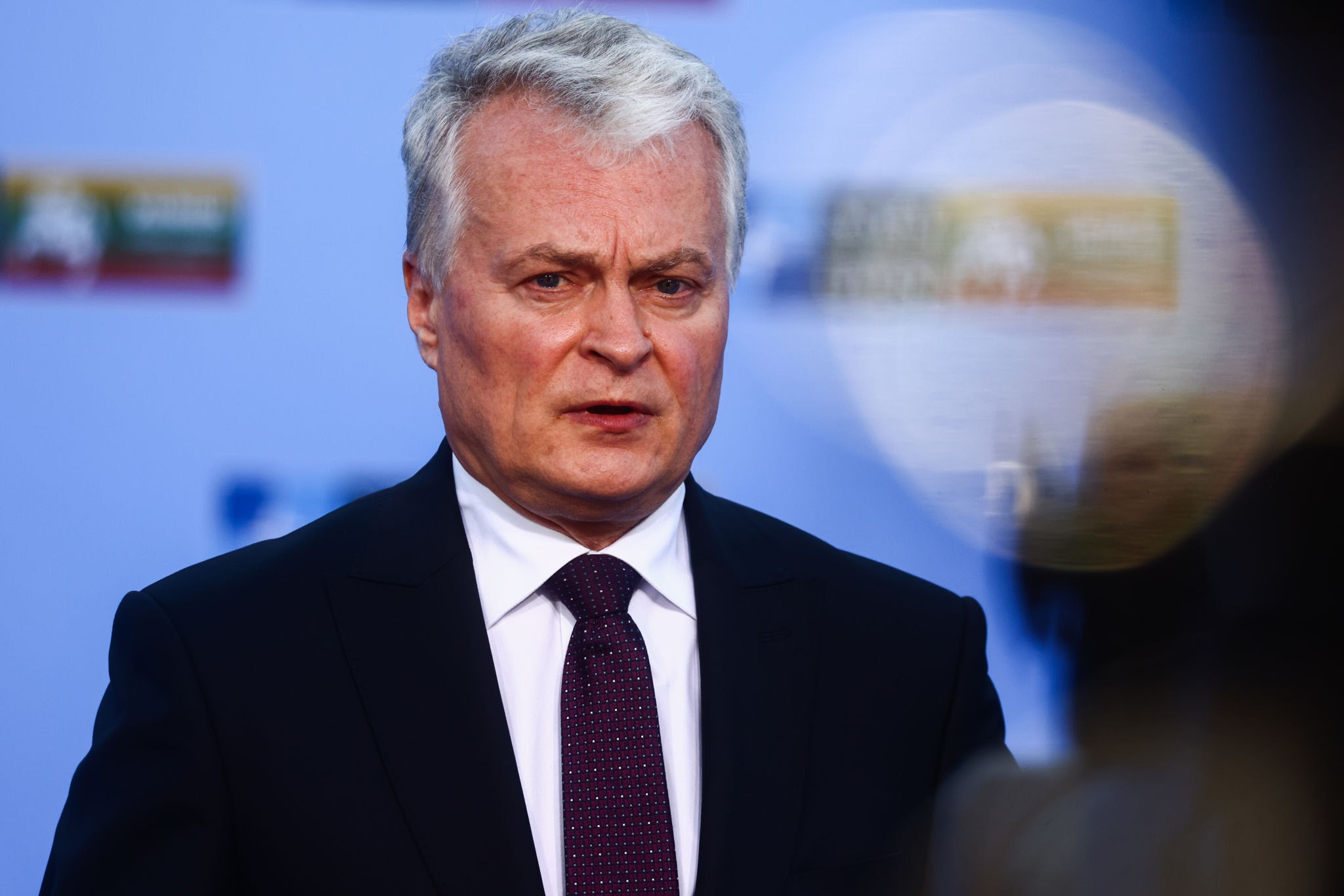
On May 26, Gitanas Nausėda received 74.43 percent of the votes in the election run-off, securing a second five-year term as Lithuanian president. Nausėda, who ran as an independent candidate, said he will continue to focus on the welfare of the nation during his second term as the head of state. He also stressed foreign policy and security as two important priorities.

Before all the votes were counted, his opponent Ingrida Šimonytė, candidate of the ruling conservative Homeland Union-Lithuanian Christian Democrats (TS-LKD), conceded defeat to the incumbent and announced her return to work as prime minister.
Nausėda received the highest-ever support in the history of presidential run-offs in Lithuania.
In 2019, 65.68 percent of voters voted for Nausėda in the presidential run-off, while Dalia Grybauskaitė received 69.09 percent of the votes in 2009. Lithuania’s Constitution prevents a person from being elected president for more than two consecutive terms. Nausėda will be sworn in as of July. Five years ago, the turnout in the presidential election run-off stood at 53.43 percent.
The outcome of the presidential election was predictable long in advance, political analysts say. It was determined not only by the popularity of the incumbent president but also by the unpopularity of the ruling conservatives.
According to political scientist Ainius Lašas, relations between the President’s Office and the government after Nausėda’s re-election will likely remain cold. Before the election, the president signalled that he would consider replacing a few ministers if re-elected.
Much will also depend on the parliamentary elections in Lithuania due to take place in October.
 Lašas explained that if the centre-left coalition emerges, a likely scenario, there will be “more focus on the welfare state policies that the president has been promising us since 2019 without much implementation in reality”. The conservatives have not solved the big problem – the methods that would allow them to broaden their electoral circle. The outcome could also have been determined to some extent by the fact that the Social Democratic Party of Lithuania (LSDP) did not have their own candidate in the presidential election and supported Nausėda.
Lašas explained that if the centre-left coalition emerges, a likely scenario, there will be “more focus on the welfare state policies that the president has been promising us since 2019 without much implementation in reality”. The conservatives have not solved the big problem – the methods that would allow them to broaden their electoral circle. The outcome could also have been determined to some extent by the fact that the Social Democratic Party of Lithuania (LSDP) did not have their own candidate in the presidential election and supported Nausėda.
One of the first second-term tasks for the president will be appointing the new chief of defence.
According to him, there are “some very serious candidates” under consideration. The five-year term of office of Lithuania’s incumbent Defence Chief Valdemaras Rupšys ends in July. According to the Lithuanian constitution, the chief of defence is appointed and dismissed by the president with the approval of Seimas.
Asked about universal conscription, Nausėda said he expects it to be introduced in Lithuania during his second term, and for the time being it would be restricted to young men. It is important for Lithuania to first prepare the infrastructure and provide sufficient funding for universal conscription.

The president-elect said that Lithuania will continue to support Ukraine militarily, politically, and economically. He pointed out that the situation in the Middle East is also worrying, with the humanitarian crisis in the Gaza Strip. “That is why we will have to look in the European Union for solutions to end this catastrophe of the 21st century. Human life is important everywhere,” Nausėda stressed.
Nausėda said he intends to remain active in economic policy. According to him, there are opportunities to make the necessary decisions with the new ruling majority to be elected in October. The president said he will continue to call for an increase in social benefits and pensions to reduce inequality in Lithuania.
Asked whether he will back LSDP in the Seimas election, the president said he intends to support any party that is ready to work constructively.






























